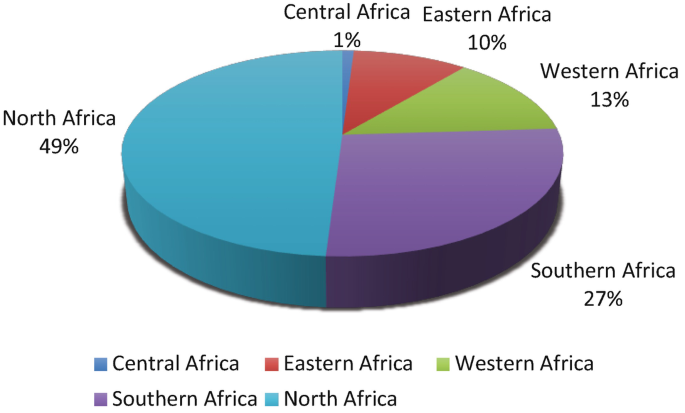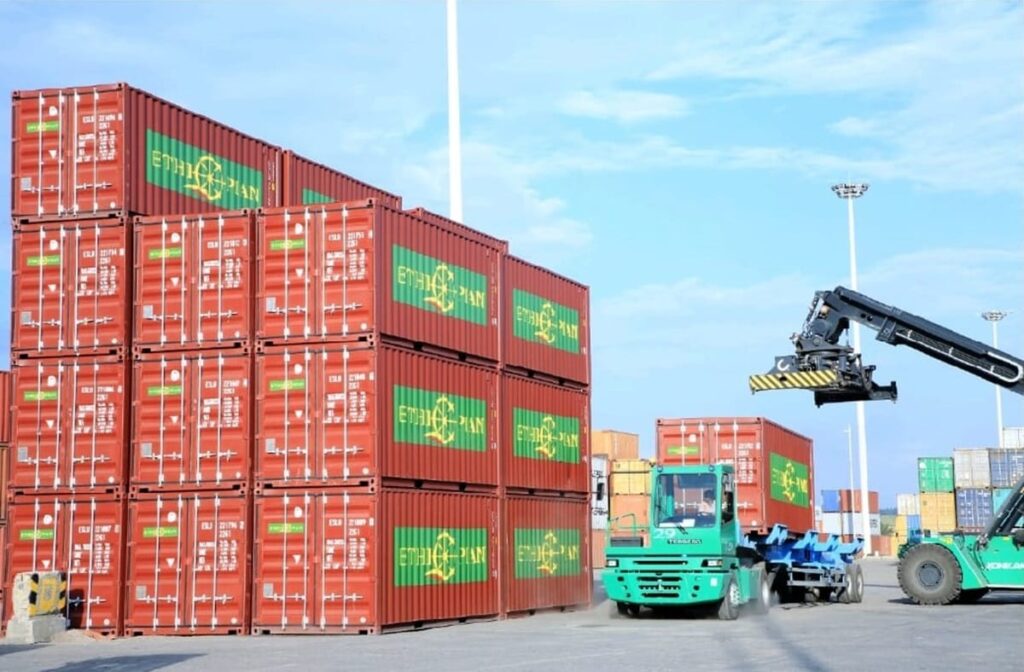In Summary
- African airlines experienced a 14.9% increase in passenger demand in January 2025 compared to the same period in 2024, with capacity also growing by 11.2%.
- The freight forwarding market in Africa is projected to reach a value of $157.21 billion in 2025, with a transportation intensity of 8.32 TKM/GDP. The volume of goods transported is estimated at 1.66 trillion TKM.
- The public transportation market in Africa is expected to reach US$8.95 billion in 2025, with an anticipated annual growth rate of 5.33% between 2025 and 2030.
- The rail transport market in Africa is experiencing growth, with projections indicating an increase from $590.53 billion in 2024 to $633.75 billion in 2025.
Deep Dive!!
The transportation sector in Africa is experiencing significant growth and transformation. Road, sea, rail and air travel are seeing a strong increase in passenger demand, particularly in international travel. The freight forwarding market is also projected to be substantial, with significant value added and volume of goods transported. Furthermore, the public transportation market is expected to grow, with revenue reaching nearly $9 billion.
In our article “Top 10 African Countries with the Largest Value of Imported Goods in 2025”, we highlighted the importance of transportation companies in the African import and export eco-system, with reports revealing that the total value of imported goods in Africa in 2024 alone was $719 billion.
As Africa advances toward a more interconnected and industrialized future, transportation has emerged as the backbone of regional integration, trade, and economic growth. Within the past decade, the continent’s top transportation companies are not only redefining logistics and mobility within national borders, they’re enabling seamless cross-border trade, powering e-commerce, supporting smart cities, and facilitating access to global markets.
Here, we have ranked the top 10 transportation companies in Africa in 2025, recognizing those making the most impact through scale, innovation, and continental reach.

10. CCI Worldwide Logistics “Trans Africa” Service – Pan-Africa
CCI Worldwide’s newly launched Trans Africa logistics platform represents a bold investment into Africa’s freight and trade corridors. With a ₹106 crore (approximately $12.7 million) commitment, the company is digitizing and modernizing cross-border logistics by leveraging real-time tracking, multimodal support, and custom clearance optimization.
By focusing on inter-country movement and simplifying trade within the AfCFTA framework, Trans Africa is unlocking efficiency and formalizing the once fragmented trucking and freight sector across borders from West to East Africa.
9. Lori Systems – Pan-African
Lori Systems is revolutionizing freight logistics by connecting shippers to transporters through its digital platform. Operating in Kenya, Uganda, Rwanda, Tanzania, Ghana, and Nigeria, it helps eliminate middlemen and reduces cargo costs.
Having raised $48 million in funding, Lori is a major force in digitizing East and West Africa’s long-haul trucking industry. Its technology allows for efficient load management, route optimization, and performance analytics, which are critical in economies where logistics costs can account for up to 75% of a product’s retail price.
8. Gokada – Nigeria
Originally a ride-hailing platform for motorcycles, Gokada has evolved into a major last-mile delivery and logistics firm serving Lagos and beyond. It offers delivery services for food, parcels, and retail products.
After motorcycle bans in Lagos, Gokada successfully pivoted into logistics, building a large on-demand fleet and delivery infrastructure that supports thousands of SMEs and e-commerce stores. It’s now expanding into fintech and retail tech logistics, driving urban economic inclusion.
7. Swvl – Egypt
Swvl offers tech-enabled bus booking and ride-sharing services through its mobile app. It offers scheduled, affordable mass transport alternatives in Cairo, Nairobi, and other African cities, targeting daily commuters.
With over $254 million raised, Swvl is bridging the gap between public and private transit, especially in gridlocked cities. It reduces carbon emissions by optimizing vehicle occupancy and routes while enabling safety and predictability in a region often plagued by unreliable transport systems.
6. Moove – Pan-Africa
Moove is a mobility fintech that finances vehicles for drivers across Africa’s ride-hailing and delivery sectors. It partners with Uber, Bolt, and others to supply cars, bikes, and trucks on a revenue-sharing basis.
With $447 million in funding, Moove is addressing Africa’s vehicle financing gap, empowering thousands of drivers, many of whom are unbanked, to access income-generating assets. Its model is reshaping gig mobility and enabling inclusive access to vehicle ownership.
5. GIG Logistics (GIGL) – Nigeria
GIGL is a dominant player in Nigeria’s logistics and courier space, offering express delivery, freight forwarding, e-commerce logistics, and inter-state shipping. It also operates in Ghana and the United States.
The company’s tech integration via the GIGGo app offers tracking, real-time updates, and seamless delivery experiences for customers and businesses. Its infrastructure has enabled hundreds of SMEs to scale their operations, powering e-commerce growth and fostering confidence in pan-African logistics.
4. Golden Arrow Bus Services – South Africa
With over 1,300 buses operating on 1,300+ routes, Golden Arrow is Cape Town’s primary bus operator. It moves 230,000+ passengers daily and is leading South Africa’s transition to electric buses.
The company introduced 20 electric buses in 2025, with 100 more expected, making it Africa’s largest green public transport operator. This move aligns with South Africa’s national climate goals and sets a precedent for urban mobility electrification.
3. Ethiopian Shipping & Logistics Services Enterprise (ESLSE) – Ethiopia
ESLSE is Ethiopia’s state-owned logistics hub, managing sea, dry port, rail, and road services. It connects Ethiopia to the global trade network through Djibouti and Berbera ports.
With a reported 57 billion birr in revenue in 2024, ESLSE is critical for Ethiopia’s import-export economy. Its multimodal approach ensures landlocked Ethiopia stays connected to the global supply chain, positioning it as East Africa’s logistics backbone.
2. Ethiopian Airlines – Ethiopia
As Africa’s largest airline, Ethiopian Airlines operates over 130 international destinations, with a growing fleet of Boeing and Airbus aircraft. It is a member of the Star Alliance and a leader in cargo, training, and MRO services.
Ethiopian Airlines powers African trade and tourism. It also serves as a model for airline profitability and state-run excellence, with massive investments in training, sustainability, and its new aviation city hub. It’s consistently ranked top by Skytrax and IATA.
1. Imperial Logistics – Pan-Africa
Now part of DP World, Imperial Logistics operates across 26 African countries, with a deep presence in healthcare, FMCG, and industrial supply chains. It manages warehouses, fleets, ports, and cold chain infrastructure.
With over R52 billion in annual revenue and 25,000 employees, Imperial is Africa’s logistics powerhouse. Its digital platforms offer visibility, control, and seamless cargo flow from ports to cities. The DP World merger further enables scale and global integration for African logistics.
https://www.africanexponent.com/top-10-transportation-companies-in-africa-in-2025/


